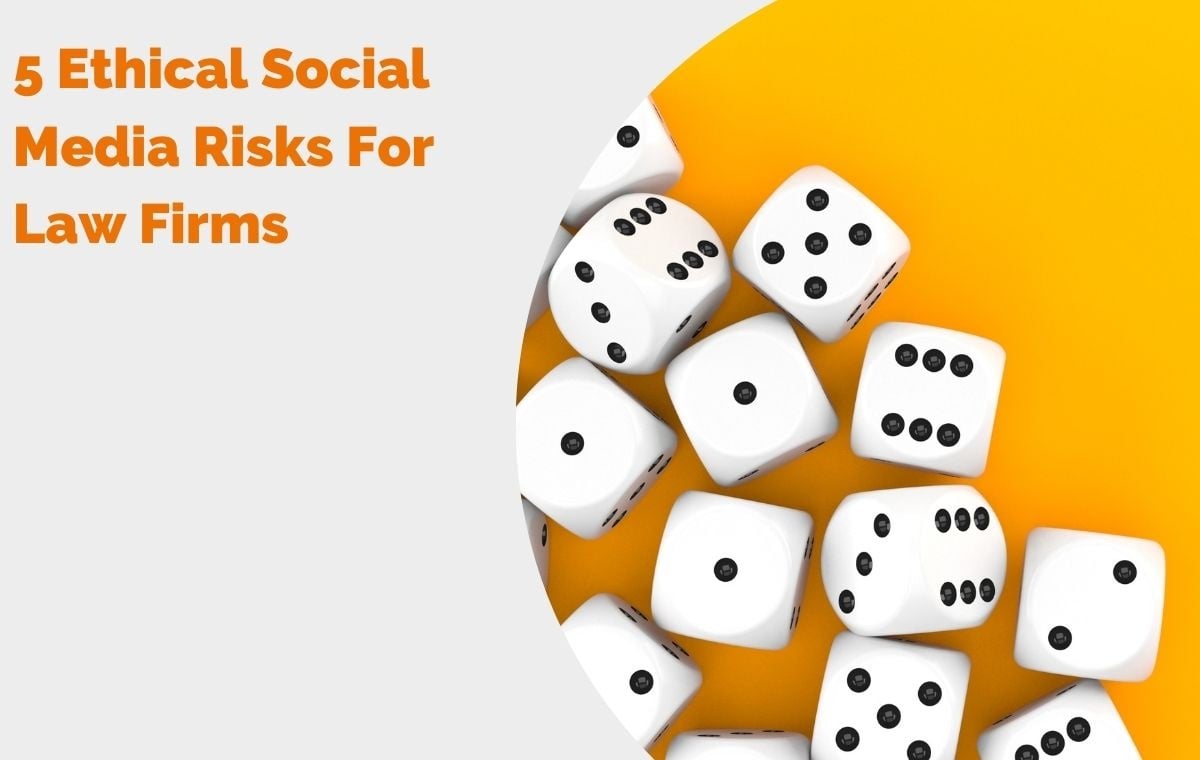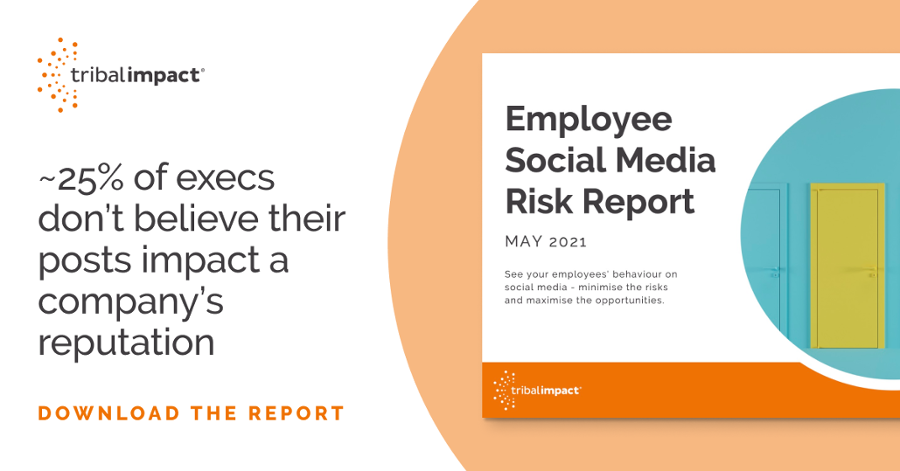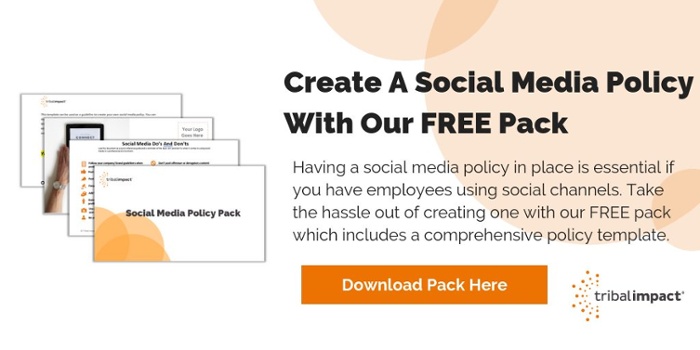
Most law firms would feel confident that their social media risks wouldn’t include their employees embroiling themselves in an anti-Semitic Twitter storm like disgraced solicitor Martin Lewis. But what of the potential ramifications of a LinkedIn post celebrating a court win, or the issues that LinkedIn endorsements can bring?
Your solicitors can be your best social media assets, as your audience will trust individuals who are practising the law daily over marketing messages. Scaring an already cautious profession into silence is therefore not the answer - increasing awareness of social media risks (and providing relevant training) is.
Read on for our top 5 social media risks for law firms and real-life breaches, followed by how you can ensure that you have effective systems and controls in place to identify, monitor and manage risks to meet Outcome 7.2.
1. Posts Or Comments That May Be Deemed Offensive Or Insulting
Discriminatory comments on social media are quite extreme and rare but solicitors posting LinkedIn updates or tweets celebrating a court case win are less so. However, the case of Baker Small serves as a cautionary reminder that one law firm’s ‘win’ can be at the expense of those who the public have sympathy for - with regulatory and reputational consequences.
 Source: Legal Cheek
Source: Legal Cheek
2. LinkedIn Skills, Endorsements & Recommendations: Inaccurate Or misleading?
In re Dickey, 722 S.E.2d 522 (S.C. 2012) a new lawyer was disciplined for listing more than 50 areas of legal practice, in which he had had little or no expertise, on numerous social networking sites (including LinkedIn).
Social media is a form of publicity, so it must not be inaccurate or misleading (Outcome (8.1) of the SRA Code of Conduct).
Most practising lawyers can be trusted to not make wildly eccentric claims on LinkedIn like the infamous ‘Lord Henley’, claiming to also be a “Transactional Analysis Psychoanalytical Psychologist”.
However, there are less clear-cut areas. Does adding “Litigation” as a skill suggest trial experience? Is it commercial or civil? What of endorsements made by connections for skills that you are not that experienced in?
3. Security Breaches
Security breaches happen daily, even to those with the most robust technological capabilities. LinkedIn is no different: the 2012 data breach is said to have led to 170 million compromised credentials.
Hackers can use fake profiles to gain access to you, your contact details and the rest of your network, meaning you could put you, your company and your clients at risk of data and confidentiality breaches.
4. Confidentiality Breaches
In Re Skinner GA, the Georgia Supreme Court rejected a petition for a voluntary review panel for a lawyer who disclosed confidential information about a former client in response to derogatory online reviews in a consumer forum. They found it was an insufficient disciplinary measure.
Client confidentiality is a fundamental feature of the solicitor-client relationship and social media poses some unique perils, such as:
- Social posts celebrating successes where permission hasn’t been granted by the client
- Online profiles that provide project names or details
- Inadvertently disclosing who you are acting for when taking part in online discussions
- Geo-tags that alert people to who you are (and thereby who you're acting for)
- Photos with background confidential information in them
5. Inadvertently Creating An Implied Client Retainer
Group discussions, commenting on case updates or being tagged on LinkedIn in response to a recommendation request are all great drivers of business development. However, there is the potential for a retainer to arise by way of implication, especially when guards are lowered – something that may be even more commonplace with the rise of audio social platforms such as Clubhouse and Twitter Spaces.
“It may be sensible to avoid entering into any kind of "discussion" with potential clients about their matters; you can save this for the first appointment.”
SRA: Question of Ethics: Using Social Media

Having Effective Systems And Controls In Place For Social Media Risks
Whilst law firms can operate systems that suit their client based and type of practice, below are some questions that you may need to ask yourself:
- How regularly are you reviewing potential technological to identify potential issues?
e.g. Geo-tagging is a relatively new concept but can be guarded against by turning off the automatic tagging within settings. You may need a policy in place for such matters.
- What social tools are at your disposal to ensure compliance?
e.g. Law firms are increasingly turning to employee advocacy tools which provide post approvals or pre-populated messages for potentially contentious posts, such as ‘court wins’ or contentious legal discussions,
- How effective is your training?
Is your training in-depth, with practical examples?
Does it test compliance knowledge?
Do you update training at sufficient intervals?
Does it deal with security risks as well as social media etiquette?
The reality is that law firms have been dealing with these intricacies for years when using traditional media. Social media simply adds another layer. Whilst before communications were kept to an inner (qualified) circle, now every employee can create and share content, sometimes resulting in ‘keyboard-happy’ reactions or posts. It’s therefore essential that you protect your law firm and solicitors from inadvertent ethical risks with a suitable social media policy and training.
Our Social Practitioner Course is an interactive eLearning social media policy course that covers everything needed to help your employees understand the potential consequences and risks on social media and protect their professional and employer brands. It uses scenario-based examples and bite-sized modules to aid retention and ensure they know how to apply theory in practice – as well as access that information in their time of need.
Find out more about how you can help empower your employees to use social media safely - check out our Social Practitioner Course.




